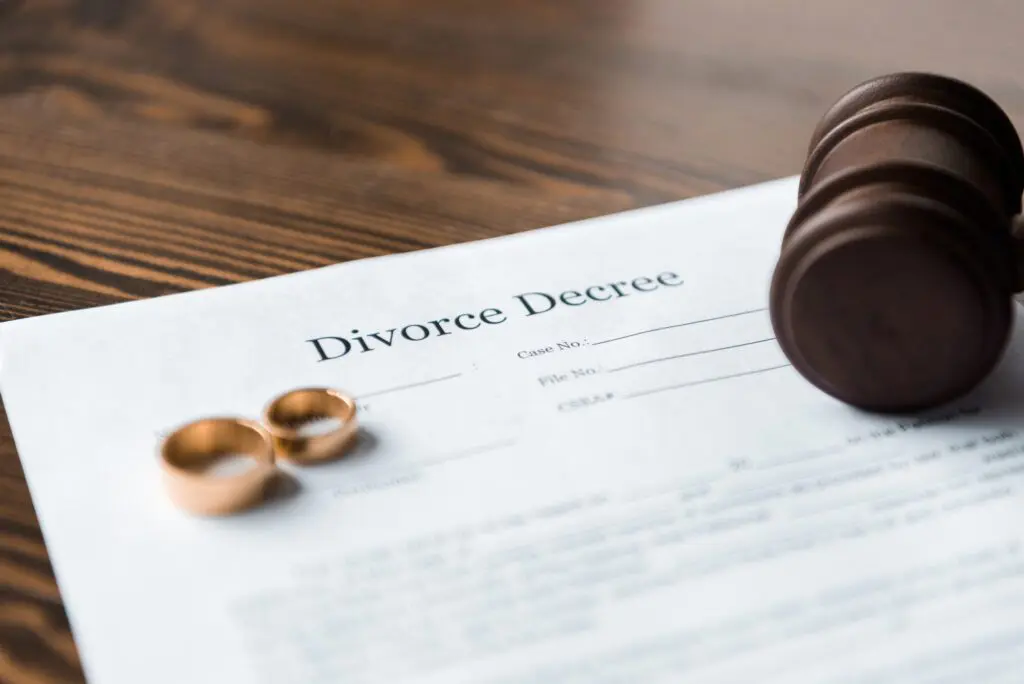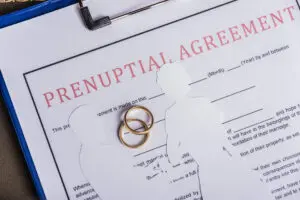Divorce records hold a wealth of public information that can be invaluable for various purposes. But here’s the burning question: are divorce records really public, and if so, how can we access them?
Understanding the public nature of divorce records is essential for anyone seeking information about past court proceedings, settlements, or parties involved. Whether you’re researching family history, conducting legal research, or simply curious about someone’s marital status, knowing where and how to find divorce records is crucial.
In the following sections, we will explore different avenues for obtaining these documents. From online resources to courthouse visits, we’ll discuss the methods available to locate divorce records efficiently. So if you’re ready to uncover valuable insights and gain access to pertinent information related to divorces, stay tuned!
Understanding the Public Nature of Divorce Records
Divorce Records as Public Information
Divorce records are generally considered public information, which means they can be accessed by the general public. These records contain important details about a divorce case, including the names of the parties involved, the date and location of the divorce, and any relevant court rulings or agreements.
Variations in Availability
However, it’s important to note that the availability of divorce records can vary from state to state. While some states make divorce records readily accessible to the public, others may have stricter regulations in place. It is advisable to check with your local government or courthouse to determine how you can access these records in your specific jurisdiction.
Insights into Legal Proceedings
Accessing divorce records can provide valuable insights into legal proceedings. For example, if you are researching your family history or genealogy, obtaining divorce records can help fill in missing pieces of information about ancestors or relatives. These records may reveal significant details such as previous marriages, custody arrangements, and property division.
Furthermore, divorce records can be useful for individuals who are considering entering into a relationship with someone who has been divorced before. By examining these records, one can gain a better understanding of an individual’s past relationships and potential legal obligations resulting from previous divorces.
Court Records and Public Access
Divorce records fall under the category of court records, which generally hold information that is available to the public unless sealed by a court order. This transparency serves several purposes: it ensures accountability within the legal system and allows individuals to exercise their right to access public information.
While some people may have concerns about privacyIt is essential to remember that this accessibility promotes transparency and helps uphold justice within society.
Accessing Divorce Records: A Step-by-Step Guide
To access divorce certificates in a systematic manner, follow these steps:
Different Jurisdictions, Different Procedures
Different jurisdictions may have different procedures for accessing divorce certificates. It is important to familiarize yourself with the specific requirements and processes of the jurisdiction where the divorce took place. This could include contacting the local courthouse or vital records office to inquire about their procedures.
Online Databases: A Convenient Option
One common source for obtaining divorce certificates is through online databases. These databases often provide access to a wide range of public records, including divorce records. They can be a convenient option as they allow you to search for and obtain copies of divorce certificates from the comfort of your own home. Some online databases require a subscription or payment, while others may offer free access to basic information.
Government Agencies: The Official Route
Another reliable source for accessing divorce certificates is through government agencies. In many cases, vital records offices or departments of health at the state or county level are responsible for maintaining and providing access to these records. By contacting these government agencies directly, you can request copies of divorce certificates by following their specific procedures. This typically involves submitting an application, providing necessary identification and payment if applicable, and waiting for processing.
Court Documents: An Alternative Approach
In some instances, court documents related to divorces may also contain valuable information that can be accessed by the public. These documents may include details such as settlement agreements, custody arrangements, or financial disclosures. To obtain court documents pertaining to a divorce case, individuals can reach out to the clerk’s office at the courthouse where the proceedings took place. They will guide you on how to request access to these documents based on their specific policies and procedures.
Additional Considerations
It is worth noting that while some jurisdictions make divorce records readily available to the public, others might have certain restrictions in place regarding the accessibility and dissemination of these records. Privacy concerns, sensitive information, or legal restrictions may affect the availability of divorce certificates in some cases. Therefore, it is essential to familiarize yourself with the laws and regulations governing public access to divorce records in your jurisdiction.
Obtaining a Copy of a Divorce Decree
To access divorce records, it is necessary to obtain a copy of the divorce decree. This official document outlines the terms and conditions of a divorce settlement. If you are in need of a certified copy for legal or personal reasons, here is what you need to know about obtaining a copy of a divorce decree.
Contacting the Appropriate Court or Vital Records Office
The first step in requesting a copy of a divorce decree is to contact the appropriate court or vital records office. The specific office will depend on where the divorce was finalized. In most cases, this will be the county clerk’s office where the court proceedings took place.
Fees and Requirements
When contacting the court or vital records office, it is important to inquire about any fees and requirements associated with obtaining a copy of a divorce decree. These may vary depending on the jurisdiction and method of request. Some offices may require individuals to fill out an application form, provide identification, or pay certain fees for processing and copying.
Methods of Request
There are typically several methods available for requesting a copy of a divorce decree. One common method is to visit the courthouse in person and make your request at the county clerk’s office. Alternatively, some courts offer online services that allow individuals to request copies electronically. It is advisable to check with the specific court or vital records office for their preferred method of request.
Processing Time
It is important to note that processing times for obtaining copies of divorce decrees can vary depending on various factors such as caseloads and administrative procedures. While some requests may be processed quickly, others may take several weeks or even months before receiving the requested documents. It is always recommended to plan ahead and allow sufficient time for processing when requesting copies.
Additional Considerations
In addition to obtaining copies directly from courts or vital records offices, there are other resources available that can assist in finding divorce records. Online public record databases or third-party services may offer access to divorce records for a fee. However, it is important to exercise caution and ensure the legitimacy of these sources before providing personal information or making any payments.
Exploring Public Access to Divorce Records by State
State Laws and Accessibility
Each state has its own laws regarding the accessibility of divorce records. Some states allow unrestricted public access, while others have more stringent regulations. It is important to understand the guidelines specific to each state when searching for divorce records.
Researching State-Specific Guidelines
The rules and regulations can vary greatly from one state to another. In some states, such as California and Texas, divorce records are considered public information and can be accessed by anyone. These states maintain online databases where individuals can search for divorce records using various search criteria such as names, dates, or case numbers.
However, other states may have more restrictive policies. For example, in New York and Delaware, only certain individuals are granted access to these records. Typically, this includes the parties involved in the divorce or their legal representatives.
To find out about the accessibility of divorce records in a specific state, it is crucial to research that particular state’s guidelines. This can usually be done by visiting the official website of the state’s vital records office or contacting them directly for more information. These offices often provide detailed instructions on how to request divorce records and any associated fees.
Court Records vs Vital Records
It is important to note that there may be a distinction between court records and vital records. While court records generally refer to all documents related to a court case, including divorces, vital records specifically pertain to birth certificates, death certificates, marriage licenses, and sometimes divorce decrees.
In some cases, obtaining copies of vital record documents may require additional steps compared to accessing general court records. For instance, individuals may need to submit a formal request along with identification documents or pay a fee before receiving copies of these vital record documents.
Online Resources and Third-Party Websites
In recent years, the advent of online resources and third-party websites has made it easier for individuals to access divorce records. These platforms often compile public records from various sources and provide a searchable database for users.
However, it is important to exercise caution when using such websites, as they may not always provide accurate or up-to-date information. It is advisable to cross-reference any information obtained from these platforms with official state or county records to ensure its validity.
Reasons for Sealing Divorce Records
Privacy Concerns
In certain circumstances, divorce records may be sealed or access to them may be restricted. One of the main reasons for sealing divorce records is privacy concerns. Divorce can be a highly personal and sensitive matter, and individuals may prefer to keep the details of their divorce proceedings confidential. Sealing the records helps protect the privacy of those involved and prevents potentially harmful information from being publicly accessible.
Sensitive Information
Another reason for sealing divorce records is to safeguard sensitive information. Divorce documents often contain personal details such as financial information, social security numbers, and medical records. Making these details public could lead to identity theft or other forms of misuse. By sealing the records, this sensitive information remains protected and out of reach from unauthorized individuals.
Protection of Children’s Interests
Divorces involving children require special consideration to protect their best interests. In such cases, courts have the authority to seal or redact specific details within divorce records that pertain directly to the children involved. This ensures that any potentially harmful or damaging information about the children does not become public knowledge. By sealing these records, courts prioritize the well-being and privacy of minors who are affected by divorce proceedings.
Court Authority
Courts play a crucial role in determining whether divorce records should be sealed or made accessible to the public. They have the authority to evaluate each case individually and make decisions based on factors such as privacy concerns, sensitive information, and protection of children’s interests. The court’s primary objective is to balance transparency with protecting individuals’ rights and ensuring fairness throughout the legal process.
Sealing or restricting access to divorce records serves important purposes in maintaining privacy, protecting sensitive information, and safeguarding children’s interests during divorces. It allows individuals involved in these proceedings to maintain their confidentiality while preventing potential harm that could arise from public exposure.
By recognizing these reasons for sealing divorce records, individuals can better understand the importance of privacy and the measures taken to protect sensitive information. Courts play a vital role in ensuring that divorce records are handled appropriately, striking a balance between transparency and safeguarding the interests of those involved.
Strategies for Protecting Privacy in Divorce Cases
Divorce cases can be emotionally challenging, and individuals involved may have concerns about their privacy. Fortunately, there are strategies that can help safeguard personal information and maintain a level of privacy during divorce proceedings.
Limit the Personal Information Shared
One effective strategy is to limit the personal information shared during court proceedings. It’s important to remember that not all details need to be disclosed unless they directly impact the case. By carefully considering what information is relevant and necessary, individuals can protect their privacy.
Consult with an Attorney
Seeking advice from an attorney who specializes in family law can be instrumental in protecting one’s privacy during a divorce case. Attorneys have experience handling sensitive information and understand the importance of maintaining confidentiality. They can provide guidance on what information should or should not be shared and offer strategies to protect privacy throughout the process.
Consider Sealing Divorce Records
In some cases, it may be possible to request that divorce records be sealed. This means that access to these records would be restricted, ensuring that sensitive information remains private. However, sealing records typically requires a valid reason such as protecting children or preventing harm to one party involved.
Use Alternative Dispute Resolution Methods
Instead of going through traditional court proceedings, individuals may consider alternative dispute resolution methods such as mediation or collaborative divorce. These approaches allow couples to work together with the assistance of neutral professionals to reach agreements outside of court. By avoiding public litigation, parties involved can maintain greater control over their privacy.
Be Mindful of Social Media Usage
During a divorce case, it’s crucial to exercise caution when using social media platforms. Posting about personal matters or engaging in negative discussions online can potentially harm one’s case and compromise privacy. It is advisable to refrain from sharing any details related to the divorce on social media platforms until the legal process has concluded.
Seek Professional Support
Divorce cases can take an emotional toll on individuals, and seeking professional support from therapists or counselors can be beneficial. These professionals can provide guidance on how to navigate the divorce process while prioritizing one’s well-being and privacy.
Protecting privacy during a divorce case is essential for maintaining personal boundaries and minimizing unnecessary stress. By limiting the personal information shared, consulting with an attorney, considering record sealing, exploring alternative dispute resolution methods, being mindful of social media usage, and seeking professional support when needed, individuals can take proactive steps to safeguard their privacy throughout the divorce process.
Differentiating Between Public and Non-public Divorce Documents
Not all divorce documents are considered public records.
Divorce proceedings involve a multitude of documents that provide essential information about the dissolution of a marriage. However, it is important to note that not all divorce documents are considered public records. While some documents may be accessible to the general public, others may be restricted or sealed due to various reasons.
Some documents, such as financial affidavits or child custody agreements, may be sealed or restricted.
Certain divorce documents contain sensitive information that requires protection. Financial affidavits, for example, often disclose personal financial details that individuals may wish to keep private. Similarly, child custody agreements involve personal matters related to children and their well-being. To safeguard the privacy of those involved, these types of documents are often sealed or restricted from public access.
Understanding the distinction between public and non-public divorce documents is important when conducting research.
When conducting research on divorce cases or seeking specific information related to a divorce, it is crucial to understand whether the desired document falls under the category of public or non-public records. Public records are typically available for anyone to access and can provide valuable insights into legal proceedings and outcomes. On the other hand, non-public records require special permission or authorization for access due to their sensitive nature.
Having clarity on this distinction allows researchers and individuals involved in legal processes to navigate through relevant resources effectively. It ensures that they focus their efforts on accessing information that is readily available while respecting privacy boundaries set by the law.
Best Practices for Finding Reliable Divorce Records
Utilize Reputable Online Databases or Government Websites
It is essential to utilize reputable online databases or government websites. These sources often provide reliable information that can be trusted. By accessing these platforms, individuals can search for divorce records using various criteria such as names, dates, or locations.
Verify the Authenticity of the Source
In order to ensure the accuracy of the obtained information, it is crucial to verify the authenticity of the source. This can be done by checking if the website or database is affiliated with a legitimate government agency or recognized organization. Reading reviews and feedback from other users can provide insights into the reliability and credibility of the source.
Cross-Reference Multiple Sources
To enhance accuracy and completeness, cross-referencing multiple sources is highly recommended. Different databases may have varying levels of coverage and access to divorce records. By consulting multiple sources, individuals can compare and validate information obtained from different platforms. This practice helps in minimizing errors and ensuring a comprehensive understanding of divorce records.
When searching for divorce records online, it is important to exercise caution and critical thinking skills. Not all websites or databases are created equal, and some may contain outdated or incorrect information. Therefore, it is advisable to rely on reliable sources that are known for their accuracy in providing public records.
For instance, government websites such as state departments of health or vital statistics offices often offer access to official divorce records. These governmental entities maintain accurate data that can be relied upon with confidence.
Reputable online databases specifically designed for public record searches also exist. These platforms gather data from various official sources and compile them into easily searchable formats. Many of these databases require a subscription fee but offer extensive coverage and reliable results.
By following these best practices – utilizing reputable online databases or government websites, verifying the authenticity of the source, and cross-referencing multiple sources – individuals can find reliable divorce records. This ensures that the information obtained is accurate, up-to-date, and trustworthy.
Tips for Safeguarding Privacy with Divorce Records
Be Cautious About Sharing Personal Information in Public Forums or Social Media Platforms
It is crucial to exercise caution when sharing personal information in public forums or on social media platforms. Divorce records contain sensitive details about individuals and their families, making them valuable targets for identity theft or other malicious activities. Avoid posting specific details such as names, addresses, or social security numbers on public platforms where they can be easily accessed by anyone. By being mindful of what you share online, you can minimize the risk of your personal information falling into the wrong hands.
Consider Using a Pseudonym or Initials When Accessing or Discussing Divorce Records Online
To further safeguard your privacy when accessing or discussing divorce records online, consider using a pseudonym or initials instead of your real name. This practice adds an extra layer of anonymity and makes it more difficult for others to connect the information back to you personally. By using a different name, you can maintain a level of privacy while still engaging in discussions or conducting research related to divorce records. Remember to choose a pseudonym that does not reveal any identifying information about yourself.
Regularly Monitor Your Digital Footprint to Minimize the Risk of Personal Information Exposure
It is essential to regularly monitor your digital footprint to minimize the risk of personal information exposure. Conduct periodic searches using search engines like Google to see what information about you is publicly available online. If you find any divorce records that contain sensitive details, take appropriate steps to have them removed from public view. Consider setting up alerts for your name and other relevant keywords so that you are notified if any new information appears online.
By actively monitoring your digital footprint, you can stay informed about what others may find when searching for divorce records associated with your name. This proactive approach allows you to address any potential privacy concerns promptly and take necessary actions to protect your personal information.
Conclusion
Congratulations! You now have a comprehensive understanding of the public nature of divorce records and how to access them. By following the step-by-step guide and exploring the different strategies for finding reliable divorce records, you can confidently navigate this process.
Remember, protecting your privacy is crucial when dealing with sensitive information like divorce records. Be sure to implement the best practices outlined in this article to safeguard your personal information. Whether you are conducting research or need a copy of a divorce decree, knowing how to access and protect these records empowers you to make informed decisions and take appropriate actions.
Now that you have the knowledge and tools at your disposal, go ahead and explore the world of divorce records with confidence. Happy searching!
Frequently Asked Questions
Can anyone access divorce records?
Yes, divorce records are generally considered public records, which means that anyone can access them. However, the specific rules and regulations regarding access may vary depending on the jurisdiction where the divorce was filed.
How can I find divorce records?
To find divorce records, you can start by contacting the county courthouse where the divorce was finalized. They usually maintain these records. Alternatively, you may also search online through state or county government websites or utilize third-party websites that provide access to public records databases.
Can I obtain a copy of a divorce decree?
Yes, you can obtain a copy of a divorce decree by contacting the court clerk’s office in the county where the divorce was granted. They will guide you through the process and provide you with the necessary steps to obtain an official copy of the decree.
Are all states’ divorce records accessible to the public?
While most states consider divorce records as public information, some states have varying degrees of restrictions on accessing them. It is advisable to check with your local government or consult legal resources specific to your state for detailed information on accessing public divorce records.
How can I protect my privacy when it comes to divorce records?
To protect your privacy in relation to divorce records, you can explore options such as requesting redaction of sensitive personal information from publicly available documents or filing for a sealing order if allowed by your jurisdiction’s laws. Consulting with an attorney experienced in family law matters is recommended for personalized guidance.






